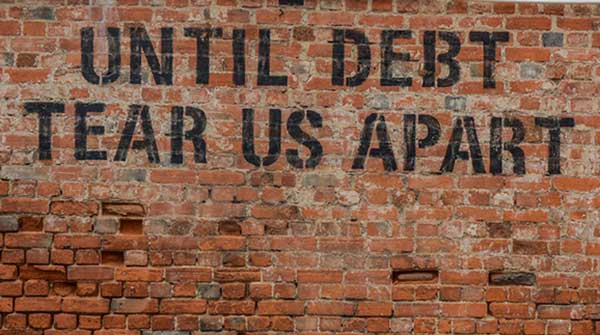Lack of spending restraint and soaring deficits a threat to Canada’s financial stability
 There’s only one problem with the federal government’s messaging about saving money: the feds aren’t actually saving money.
There’s only one problem with the federal government’s messaging about saving money: the feds aren’t actually saving money.
“The foundation of our Fall Economic Statement is our responsible fiscal plan,” said Finance Minister Chrystia Freeland.
The mid-year budget update shows the government increasing spending by $15 billion this year. A far cry from Freeland’s March promise to find “savings of $15.4 billion over the next five years.”
Next year, the government will increase spending by $30 billion. And that comes on top of an already ballooned baseline.
The feds spent all-time highs before the pandemic. That means Prime Minister Justin Trudeau was spending more before the pandemic than the feds did during any single year during World War II, even after accounting for inflation and population growth.
Freeland is trying to put Canadians’ minds at ease by claiming her deficits are “modest.” Canadians have heard this before.
When running for prime minister in 2015, Trudeau promised to run a few “modest” deficits of less than $10 billion before balancing the budget in 2019. Trudeau blew that balanced budget promise by a “modest” $20 billion.
This year’s deficit is projected to hit $40 billion. Deficits in 2024 and 2025 are both projected to be $38 billion.
Is this the new modest? Four times larger than the “modest” deficits Trudeau first promised?
The mid-year budget update proves this government has no idea how to balance a budget.
In fact, the only mention of a balanced budget in Ottawa comes from the Parliamentary Budget Officer, who forecasts the next balanced budget will happen in 2035. But that relies on the economy growing every year, relatively low interest rates and no new spending.
A government too incompetent to balance the budget means Canadians are paying dearly just to service the debt.
This year’s interest charges will cost taxpayers more than $46 billion. That’s almost $4 billion every month that’s not going to improve services or lower taxes. It’s also a cost of more than $1,000 for every Canadian.
Next year, debt interest charges will surpass federal health transfers to the provinces. Soon, every penny collected from the GST will go toward servicing the debt.
As bad as the budget is, the government could keep the ship from sinking with modest spending restraint.
The government could balance the budget next year by using its own projected program spending from two budget updates ago. Instead of running a $38-billion deficit next year, taxpayers would have a $1-billion surplus if Freeland just stuck to the spending plan she created in 2021.
This highlights the root of Trudeau’s spending problem – the ratchet effect. Almost every budget document released by this government drastically increases spending.
The mid-year budget update in 2019 first projected spending in 2024 to be $421 billion. This year’s budget update shows the government will spend $519 billion in 2024.
This government’s muscle for fiscal responsibility has atrophied.
MPs from all political parties can’t help themselves from taking a pay raise every year – regardless of the struggles their constituents endure. The prime minister can’t help but spend $61,000 on Manhattan hotel rooms during a two-day anti-poverty summit.
No one in government is willing to end the hundreds of millions in bureaucratic bonuses despite departments consistently meeting less than half of their own performance targets.
The Liberals are also unwilling to take the air out of the ballooning bureaucracy, which increased by 98,000 employees since they took power. That’s almost 40 percent more federal employees. The bureaucracy currently consumes half of every tax dollar used in day-to-day spending.
No party in the House of Commons is willing to oppose the more than $43 billion taxpayers are being forced to give multinational corporations to build battery plants.
This government hasn’t shown one iota of fiscal restraint. In fact, the government appears to be trying its best to run up the red ink. Fortunately for taxpayers, it would only take modest spending restraint for a serious government to bring the books back into the black.
Franco Terrazzano is the Federal Director of the Canadian Taxpayers Federation.
For interview requests, click here.
The opinions expressed by our columnists and contributors are theirs alone and do not inherently or expressly reflect the views of our publication.
© Troy Media
Troy Media is an editorial content provider to media outlets and its own hosted community news outlets across Canada.

